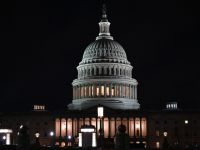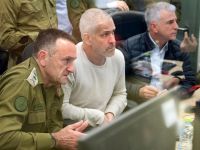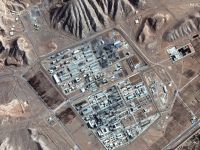The Yugoslav army's arrest of two Britons and two Canadians on charges of plotting against the Yugoslav government has been met by differing reactions from London and Ottawa.
The Yugoslav army said that the four westerners had been picked up late Tuesday in Montenegro, Serbia's junior partner in the Yugoslav federation, near the administrative boundary with Kosovo, the army said in a statement.
They were arrested for allegedly plotting against the government and for training special police in its independence-minded republic of Montenegro.
The detained Britons were identified by Western officials as police instructors working for the Organization for Security and Cooperation in Europe (OSCE) in the UN-administered Yugoslav province of Kosovo, and the Canadians as a Kosovo-based businessman and his nephew.
Britain blasted the arrests, and angrily summoned Belgrade's senior diplomat in London to the Foreign Office.
"It is unacceptable to parade British citizens -- policemen seconded to the OSCE as part of the United Nations Mission in Kosovo (UNMIK) -- before the world's media accused of terrorism and espionage," the Foreign Office said in a statement.
"No evidence was produced to support these charges," it added.
The tone from Ottawa was less strident.
The two arrested Canadians were apparently in Montenegro illegally, Canada's Foreign Affairs department suggested Thursday.
The department confirmed that two of the four people arrested by Yugoslavia in Montenegro were Canadian citizens -- Shaun Going and his nephew Liam Hall.
Spokeswoman Marie-Christine Lilkoff said: "We understand that Mr. Going and Mr. Hall did not have valid visas to visit Montenegro."
Lilkoff said the Canadian embassy in Belgrade "remains in close contact with the Yugoslav Ministry of Foreign Affairs and Montenegro officials" and that Canada had dispatched a senior diplomat to Andrijevica in Montenegro to meet with the two arrested Canadians.
Asked if Canada had protested the arrests, Lilkoff said: "We have expressed our concerns".
The four arrested men were paraded on Serbian state television (RTS), along with items found in their possession including foreign money, a knife, wiring that could allegedly be part of an explosive device and a map of Kosovo in the Albanian language.
It said the four were "armed and equipped with military material and explosives."
"There are indications that the arrested foreigners have trained Montenegro's special police units and that they are specialists in conducting terrorist actions," the statement said -- BELGRADE (AFP)
© 2000 Al Bawaba (www.albawaba.com)







